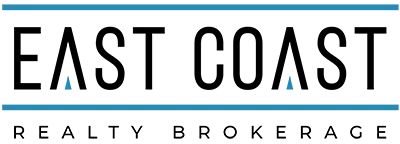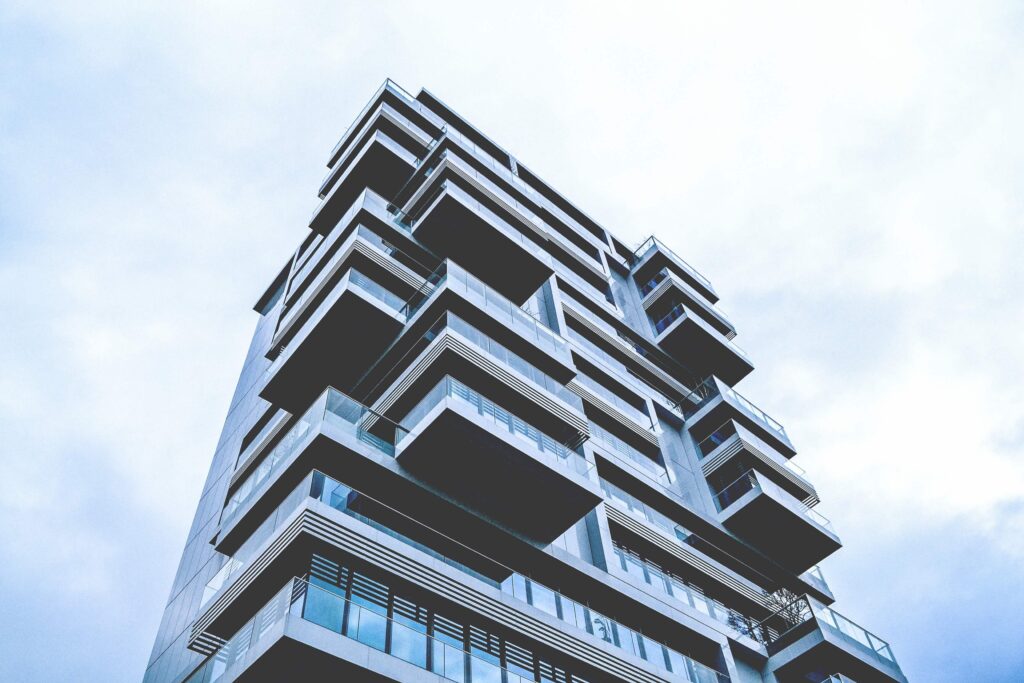
What to Know Before Buying Homeowners Insurance.
Buying a home is a huge decision many folks make, whether to support a growing family, make a financial investment, or some combination of the two. And for those of us who decide to purchase a home, the property itself is the largest asset we may ever own. Once the stress satisfaction of purchasing (and decorating) your new home wears off, the reality and weight of your investment begin to sink in at a sobering speed. With the understanding of just how much income is tied to owning and maintaining a home, protecting such an investment can feel a bit overwhelming. Fortunately, homeowners insurance helps you sleep easily. To find the right coverage, make sure you ask and answer these six questions to help you find the company and policy that’s best for you.
1. How is homeowners insurance different from renters insurance?
If you’re looking to buy a home, it’s likely you’ve rented an apartment or house before, so you have some familiarity with insurance. In much the same way that renters insurance covers your most valuable assets, homeowners insurance is intended to provide the peace of mind that comes with knowing you are adequately covered in the case of personal property loss.
However, owning a home requires a much higher level of financial commitment than renting. Since you are also responsible for the property in which you live, in addition to everything that fills your space, you need a much higher level of protection. For most folks, the home makes up a huge portion of the value of what they own, so protecting that asset is crucial.
The benefits of homeowners insurance coverage:
- Protecting the main structure – Your largest asset must be protected at all costs. If your home is damaged in a storm or burns to the ground because of a grease fire in the kitchen, the repair costs can be astronomical. Without the help of your insurance company, those costs would have to come out of your own pocket.
- Protecting your personal belongings – From a sectional sofa to the fine china you received as a wedding gift, your personal property is part of what makes your house a home. It’s important to make sure those items can be repaired or replaced if something happens to them. And the great part is that your belongings are covered inside and outside of your residence. (Check out our advice for cataloging your personal property.)
- Protecting your liability – Along with the structure of your home and all of the things that fill it, ensuring that your liability is covered is of the utmost importance. Whether you have an unruly pet that happens to bite someone, a rambunctious youngster that damages an expensive painting at a friend’s house, or you clumsily bump a stranger and cause an injury, your exposure to liability is exponential.
As you can see, renters and homeowners insurance share a few commonalities. The biggest difference, however, is the protection of the physical structure of your home. Although protecting your personal property and liability is extremely important, covering the structure might be the most important aspect of a homeowners policy.
2. Is homeowners insurance necessary?
If you own a home, you absolutely need homeowners insurance. With the exception of people wealthy enough to cover themselves for any loss (and even those folks can benefit from coverage), homeowners insurance is a foregone conclusion for property owners. This is definitely the case for anyone who obtained his or her home via mortgage. Although homeowners insurance is not required by law, like financing a car often is, mortgage lenders require that your home be insured for the duration of your loan.
Aside from being required by a bank, homeowners insurance provides coverage for countless circumstances that could be financially crippling if you experience a loss without being insured. Even the most basic homeowners insurance policy covers against fire, theft, vandalism, and a myriad of additional hazards.
Since we don’t regularly think of these types of incidents occurring, they are easy to overlook. And sure, it might be highly unlikely for your home to be damaged by a volcano or heavy snow, depending on where you live, but trust us: weird sh*t happens. And once the unforeseen happens, it is a huge relief to know that you and your home are covered.
3. Are there different types of homeowners insurance policies?
Yep. For most homeowners, there are three policy types you will want to ask your insurance agent about before purchasing coverage. The type of homeowners insurance policy you purchase will determine the breadth of your coverage.
A homeowners policy overview:
HO-2 Basic Form coverage
The reason an HO-2 policy is considered the most basic is due to the fact that it is a “named-peril” policy. “Named-peril” simply means that the policy includes a list of specific losses against which your home and personal property are covered. If you experience a loss that falls outside of what is specifically covered by your policy, you will be paying for repairs or replacement out of your own pocket.
HO-3 Broad Form coverage
An HO-3 policy denotes an “open-peril” level of coverage for the structure of your home. “Open-peril” describes a policy that covers any loss except for those things specifically excluded by your insurer, offering much broader coverage. HO-3 policies, however, still cover your personal property on a “named-peril” basis.
HO-5 Comprehensive Form coverage
The HO-5 policy offers the broadest level of coverage available as it protects both your home and your personal belongings on an “open-peril” basis.
(In case you’re wondering about the jump from HO-3 to HO-5, yes, there are other numbers, too. An HO-4 policy is renters insurance and an HO-6 is a condo owner’s policy.)
4. How do I make sure my personal items are properly covered?
In addition to understanding how the structure of your home is covered, it is equally imperative to understand how your personal property would be covered in the event of a loss. When asking your agent about the policy types listed above concerning your home, it’s also a good idea to ask how this policy covers personal items as well. While homeowners insurance policies have provisions to cover your property, the specifics can mean a big difference in how you’re compensated if something is stolen or damaged.
Actual Cash Value
Similar to the way your vehicle is valued by an insurance company if it is totaled, standard homeowners insurance will value your personal belongings on an actual cash value basis.
Actual Cash Value (or ACV) takes depreciation into account when determining how much you will receive after filing a claim, lowering the amount you are compensated for any particular item. An example would be if your four-year-old TV was stolen from your home, the amount you would receive for the TV would be less than the original sticker price if your policy is based on ACV.
Replacement Cost
Many companies also offer coverage to replace your personal property at replacement cost, though this type of endorsement would mean you will pay more for your policy.
Replacement Cost coverage means your belongings would be valued higher at the time of a claim since it does not take depreciation into account. Taking the example of a four-year-old TV, if you have Replacement Cost coverage, your compensation would be based on the cost to replace that TV with a brand new version.
The Fine Print
One last thing to keep in mind about personal property coverage: homeowners insurance policies cap the amount of coverage available for certain item categories like jewelry, firearms, and golf equipment. So just because you have a high dollar amount of coverage for personal property does not mean all of your items would be covered if your home burned to the ground.
The best way to avoid a coverage gap would be to notify your agent about high dollar items you own so they can “schedule” (or list) those belongings on your policy (you’ll pay a slightly higher premium for this) and you can be adequately compensated in the event of a loss.
5. Is there anything NOT covered by a homeowners insurance policy?
Just like auto insurance, there is no such thing as “full coverage” for homeowners insurance.
One of the most concerning aspects of covering your home and personal property is protecting your home against bad weather. Weather events are often unpredictable and can be incredibly damaging to your home. Fortunately, many weather events are covered by your insurance policy, but there are some exceptions. It’s a good idea to ask your agent specifically about how your policy would handle claims for different damaging weather scenarios such as hurricanes.
Two specific weather events that are NOT covered on a homeowners policy are flooding and earthquakes.
You can still protect your home against either event by purchasing flood insurance through FEMA and either a separate policy or endorsement for earthquakes. While not every person lives in areas prone to earthquakes, floods can happen anywhere and to anyone so make sure not to flirt with potential disaster by neglecting your flood insurance needs.
6. What’s the best way to get homeowners insurance?
Shopping for homeowners insurance is much more involved and requires a lot more time than shopping for auto insurance. A few things to remember when choosing an insurance company:
- Before you even begin the shopping process, it’s a good idea to gather all of the paperwork associated with your home to help speed up the process of obtaining an actual quote. This might include mortgage paperwork, tax documents, and your existing homeowners insurance policy if your home is already insured.
- Gather as many details about your residence as possible. Insurance companies will likely ask:
- The year the home was built
- Age and style of the roof
- Square footage of the home (living area only)
- Style of the home (colonial, victorian, split-level, etc.)
- Siding on the home
- Type and number of heat sources
- Type of flooring
- Type of waste system
- Proximity to the closest fire hydrant and fire department
- Safety devices and whether or not they are monitored (fire, burglar, carbon monoxide alarms)
- Bundling home and auto coverage can be a convenient and money-saving choice when considering your homeowners insurance options. However, not all insurance companies are the same and you should carefully review the specifics of each quote you receive.
- Price isn’t everything. Your home is a valuable asset, so it’s critical to ensure you have adequate coverage and won’t be financially devastated by an unexpected event. Simply comparing pricing among insurance providers may cause you to miss important details about how your belongings are covered, whether you are subject to multiple deductibles for certain claims, or whether you have a named or open-peril policy.
- Using a trusted source such as J.D. Power can help you begin the process of finding the right insurance fit for you, and J.D. Power’s 2016 home insurance survey should provide helpful guidance regarding insurance companies’ policy offerings, claims processes, price, and overall satisfaction, among other things.



